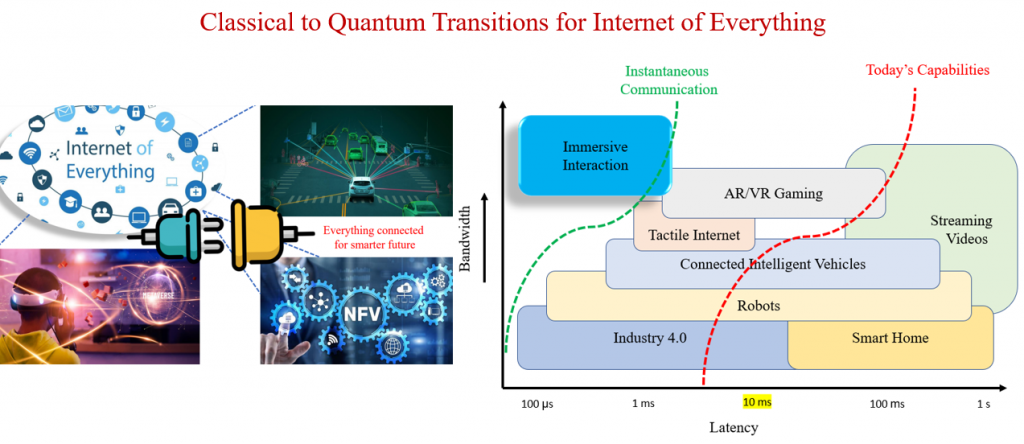Internet of Everything (IoE) refers to the intelligent connection among people, things, data, and processes, essentially inclining toward the next-generation networks. To unleash the full potential of the IoE framework, it often requires nearly real-time management decisions regarding deployment and scheduling operations. The IoE service management problems, primarily formulated as traditional mathematical programming models, are NP-hard, hence inappropriate for time-sensitive IoE environments. This research project promotes the need to go beyond the realms and leverage quantum computing-based service management. We also intend to evaluate the feasibility of applying quantum computing for such IoE optimization based on today’s available quantum resources (qubits). Further along this line, we envision determining the advantages of solving NP-hard problems using quantum computing over classical approaches and major trade-offs hindering the applicability. In this regard, three IoE domains have been chosen: Network Function Virtualization, Metaverse, and Autonomous/Electric Vehicles. Based on the research progress so far, hybrid quantum-classical computing is the key to solve futuristic IoE service management optimizations, considering the limited availability of quantum computing resources (qubits). The synergistic research for quantum computing-enabled network optimization and analytics can be regarded as an effort to scale down massive resource fabrication costs and upgrade profit margins for service providers. Designing quantum-compliant optimization modeling and quantum AI models are the two most important technical aspects of this research. Moreover, we strive to increase the scalability of quantum computing by using hybrid classical-quantum approaches, considering the availability of limited/restricted quantum resources (qubits) in today’s world. The research outcomes are expected to portray a clear picture of where we stand in terms of available quantum resources, along with their feasibility and scalability. Hence, we continuously endeavor to learn the prospects of quantum computing in the future.

